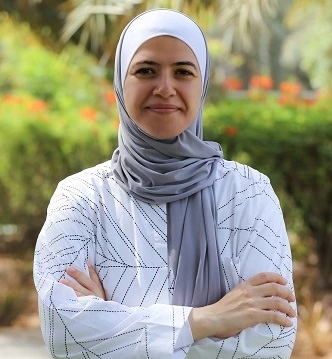Why I insist on baking Eid sweets at home
Every year a day or two before Eid Al Fitr or Eid Al Adha, which are the two main Muslim holidays, I bake at home a small batch of traditional Eid sweets. I am a working mother of three, and baking needs a big slot on my busy agenda. So why do I do it? And don’t just buy ready-made ones? The answers are in this story


Why do I make Eid sweets at home?
- Making memories
The word Eid stirs joy, celebration, and gathering. To me, it’s not just the gatherings with friends and family during the holiday, but the gathering for making sweets. I still remember fondly gathering with my mother, sisters, and neighbors sometime to make, shape, and bake the delicious sweets we call “Kaak”. Those gatherings included sharing stories, laughter, and joy. I insist on having the same gatherings with my daughters to offer them the opportunity to store such beautiful memories for years to come.
- Creating rituals
The fox in Antoine de Saint-Exupéry’s masterpiece “The Little Prince” Says (We all need rituals, it's what makes one day different from the other days)
Rituals have always been part of our history as humans, and they shape our identity in one way or another. By making those sweets with my daughters at home every Eid, and having the house smell of condiments, I am establishing a ritual and giving my family a special day distinguished from the others.
- Bonding
These few hours I spend with my daughters preparing the Eid sweets are an excellent opportunity to bond and share. When was the last time a pre-teen or a teenager spent hours with their parents? These few hours are our time where we share a tradition passed by many generations of women before us.
- The taste
No matter how professional a bakery is, for children, nothing will ever taste as good as a mother’s baking.
Eid sweets recipe
This is a recipe I had from one of my husband’s aunts that she learned from women before her, so it is not just a recipe it is a legacy that I am passing on to my daughters as well.
Ingredients
- 3 cups of flour
- Half a cup of ghee
- Half a cup of vegetable oil
- A quarter of a cup of sugar
- 1 tablespoon of baking powder
- 1 teaspoon of instant yeast
- 2 tablespoons of Kaak condiments
- 1 tablespoon of anise seeds
- Half a tablespoon of fennel seeds
The filling:
date paste mixed with some olive oil and cinnamon.
Steps:
- The flour and the fats are mixed and covered overnight. The next day the rest of the ingredients are added with some water until the dough is easily shaped.
- Roll small dough balls and fill them with the date mix. Shape in form of a bracelet, or you can use a special mold. Then bake for 10 minutes in a preheated oven at 180 degrees.
- Enjoy Kaak El Eid with coffee or tea with your loved ones, and Eid Mubarak.
Check out What is Motherhood?





